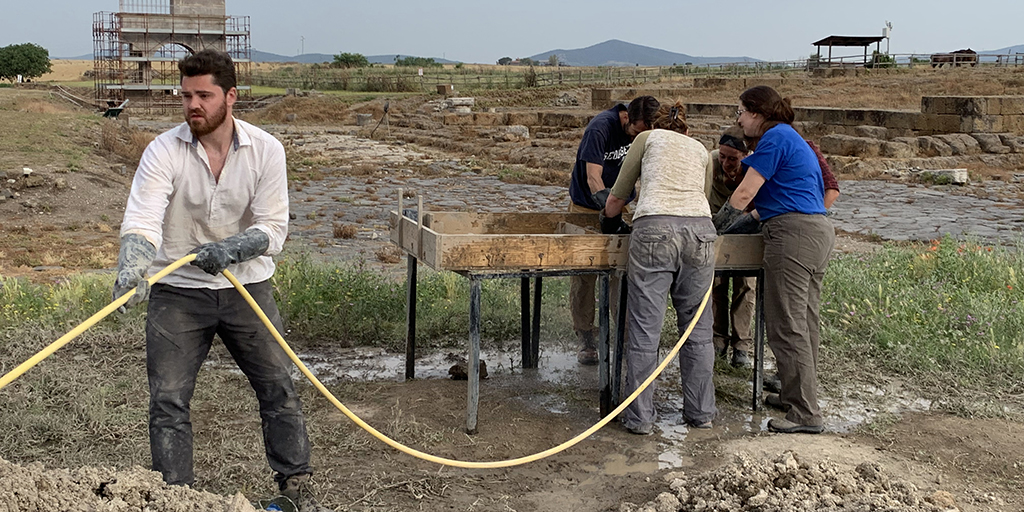Using Today’s Technology to Discover an Ancient Past
July 19, 2019

For Maurizio Forte, professor in Duke’s departments of Classical Studies and Art, Art History and Visual Studies, there is plenty to teach his students in the classroom.
But some lessons are best taught in the windblown countryside of central Italy. For the past six summers, Forte has brought Duke students to the Vulci archeological excavation site to use traditional techniques and cutting-edge technology to examine what was once an Etruscan and Roman city.
“It’s great to bring students to the excavation where we can teach something you can’t just teach anywhere,” Forte said. “Even at Duke, it’s impossible to teach field work classes and to take technology and practice in such an intensive way.”
For most Duke faculty members, the academic year is spent teaching courses and keeping pace with the busy rhythm of campus life. In summer, schedules open up, providing an opportunity to dive into research or student enrichment programs.
For Forte, summer is when he can further his research and give his students an unforgettable learning opportunity. This summer, his Vulci 3000 project, which is supported by Bass Connections, will create a terabyte of data that will fuel research back on campus. The work gives students – some of whom will use drones or produce a documentary about the research – valuable field experience.
“It’s a unique opportunity,” Forte said.
Excerpted from Where the Scholarly Work Takes Them by Stephen Schramm; originally posted on Duke Today
Learn More
- Read about this Bass Connections project team, Smart Archaeology.
- Explore the Information, Society & Culture theme of Bass Connections.
- Browse stories from students, including Smart Archaeology team member Katherine McCusker, on their Bass Connections experiences.

